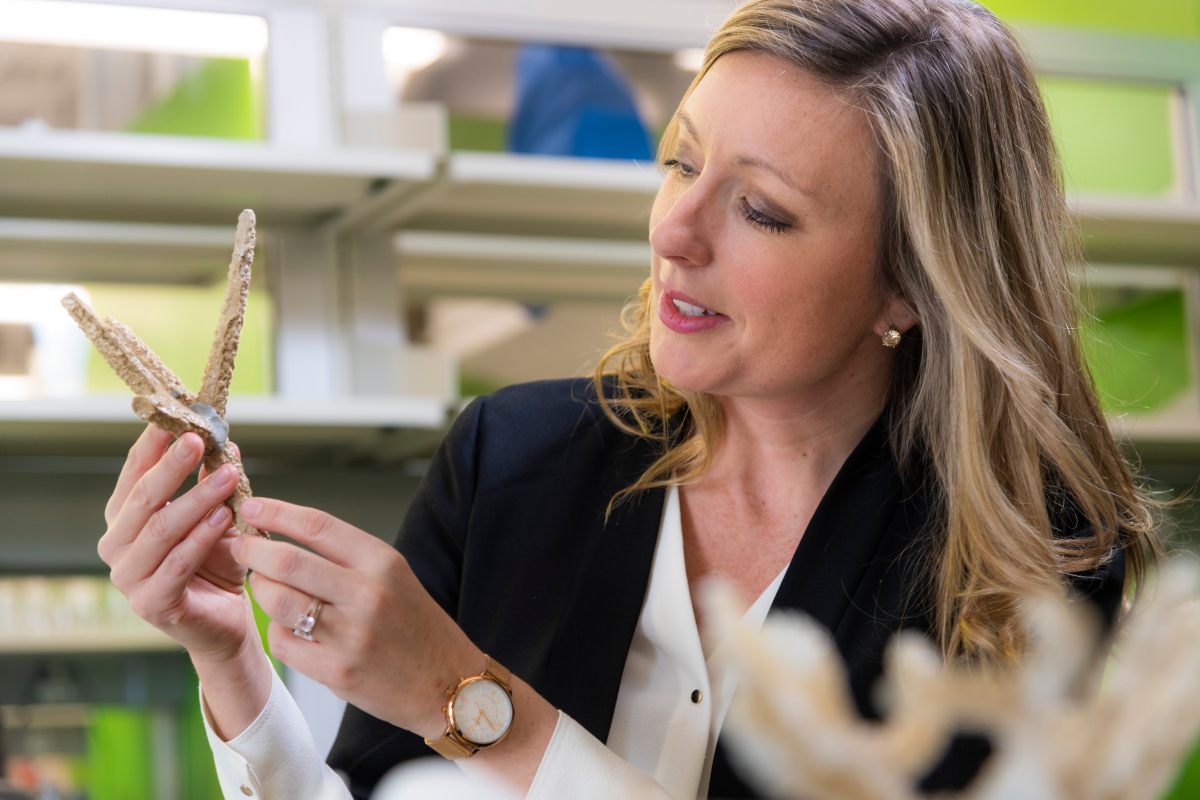
Assistant professor Stephanie Green's research on our changing oceans has recieved a funding infusion from the Canada Foundation for Innovation. Photo credit: John Ulan
Research on our changing ocean ecosystems has received an infusion of funding from the Canada Foundation for Innovation (CFI). The research, spearheaded by the University of Alberta’s Stephanie Green, includes projects that examine the dynamic coral reef environments in the Western Atlantic.
“These reef environments are rapidly being lost due to human pressures from a changing ocean climate, habitat loss, and biological invasion,” explained Green, assistant professor in theDepartment of Biological Sciences and Canada Research Chair in Aquatic Global Change Ecology and Conservation.
Earlier this week, Green was awarded funding from theJohn R. Evans Leaders Fund (JELF), a CFI initiative to support computing infrastructure and data storage, as well as marine research equipment. JELF funding enables researchers to invest in the advanced research infrastructure and tools required to push the boundaries of their respective fields. The project also received matching funds from the Government of Alberta.
Learn more about Green’s research.
What type of infrastructure will this new funding support?
This funding will support high-performance computing and data storage for our lab's work on modeling ocean ecosystem change.
It will also support a marine research vessel and equipment for scuba-based underwater data collection. These tools will allow us to gather field data and specimens in remote coral reef environments in the Western Atlantic. These reef environments are rapidly being lost due to human pressures from a changing ocean climate, habitat loss, and biological invasion.
How will these new tools support your work in pushing the boundaries of your field?
Much of the research in our lab centers on generating predictive models of ecosystem change under various human use scenarios.
High performance computers allow us to create complex models that more accurately reflect real processes of change in ocean ecosystems, and conduct 'what if' analyses of how the system responds to conservation actions like habitat restoration, invasive species removal, or changing fishing pressure.
Our field vessel and underwater data collection equipment will allow us to gather data in real-time to feed into our models. These data also allow us to evaluate how the changes our models predict are play out in the coastal environments we study.
Why is this type of funding important?
Funding infrastructure like high-performance computing equipment and field research vessels gives our lab the ability to scale up the work we do by collaborating with other agencies and university partners that don’t have access to these types of resources. By leveraging these large pieces of infrastructure, we can achieve research goals that are at a scale beyond what one group could do alone.
What makes the University of Alberta's Faculty of Science an excellent place to pursue this research?
The research infrastructure and expertise of staff in the Faculty of Science makes our work far more efficient and effective. We are excited about the excellent support from the Science and Technology IT team, the presence of the Cirrus cloud computing network on campus, and the Biogeochemical Analytical Services Lab (BASL). All of these resources mean that we are able to tap into an existing network of experts and large scale infrastructure to which our funding adds value.
Learn more about the ways that research at the University of Alberta’s Faculty of Science research is driving sustainability and conservation on our Sustaining Earth’s Systems hub.